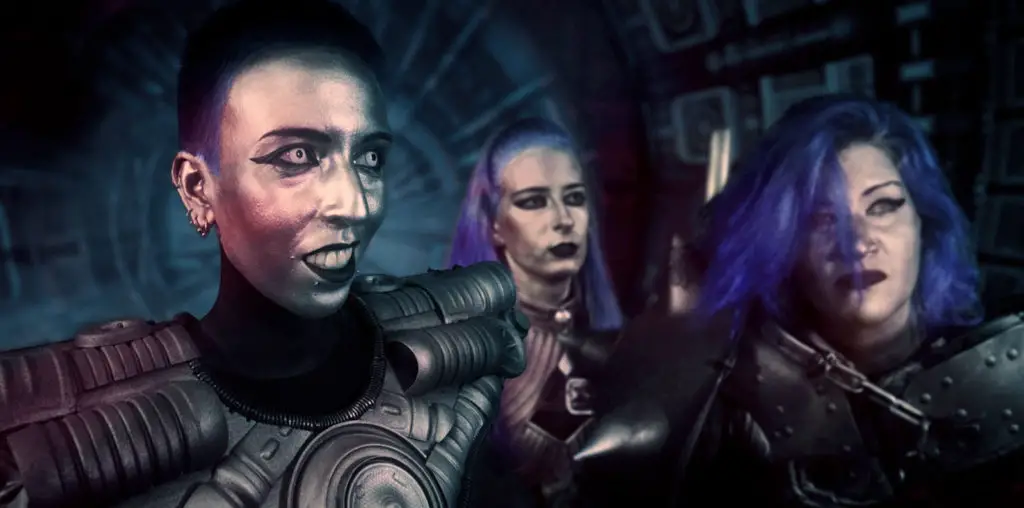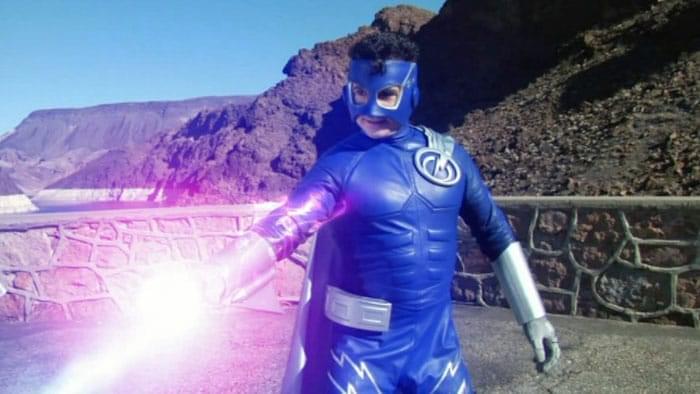
With Manifesto, Cate Blanchett proves that she could indeed read the phone book and keep an audience captivated for 95 minutes.
There’s never been any doubt that the two-time Oscar-winner has ability, but in a series of 13 sketches, she recites a series of manifestos from authors and filmmakers as divergent as Lars Von Trier, Karl Marx, Dziga Vertov, André Breton and Werner Herzog.
German writer-director Julian Rosefelt thankfully has something more interesting in mind than merely presenting Blanchett reading the texts. Instead, he presents Blanchett in 13 different sketches where she recites dozens of texts pieced together thematically but not sequentially or even the way the authors intended. Manifesto has also been presented as a museum piece where all the texts are shown through split screens at the same time.

“Cate Blanchett proves that she could indeed read the phone book and keep an audience captivated for 95 minutes.”
If you’re alert, you might be able to catch where Blanchett recites Breton or Marx, but Rosefelt leaps from author to author so quickly, that it’s pointless to dissect the texts as the film proceeds. The sketches feature Blanchett playing everything from a stockbroker to a housewife saying a prayer before dinner to a chemical worker to a newscaster to a school teacher.
In all of the pieces Blanchett, who hails from Australia, effortlessly juggles dialects, tones, hairstyles, wigs and a series of looks that don’t resemble her at all. It’s a delight to watch her shape shift, but all of her characters seem real even if they’re speaking in texts that were never intended to be used dramatically or even together.
Then again, maybe Marx et al didn’t understand the potential of their words. Blanchett recites some of the texts as if she were a lonely voice in the wilderness, but much of Manifesto is side-splittingly funny.
When Blanchett delivers Claes Oldenburg’s I am for Art…, her American southern drawl sends her real-life son into hysterical laughter as if he’s wondering if she’s lost her mind. Her husband, played by her real-life spouse Andrew Upton looks at her with frustration, wondering when the meal will finally be served. The move could have been stunt casting, but her real-life family seem to have her on-camera gifts.
Blanchett even plays both sides of an exchange. Watching her as a both glamorous, pampered anchor and a field correspondent braving a downpour seems weirdly natural, even though “back to you, Cate” plays like a joke.
Rosefelt finds dozens of fascinating environments around Berlin that could pass for just about anywhere. One of Blanchett’s addresses plays just like a New Orleans Jazz funeral, and the surroundings don’t look European at all. The chemical plants look creepy in a way that no set ever could.

“…much of Manifesto is side-splittingly funny.”
Manifesto seems even more impressive considering that it was shot in approximately 12 days. The sheer volume of material that Blanchett goes through is remarkable because on a schedule like that there isn’t much time for her to do alternate takes if she flubs a passage.
In recent, legal filings, Johnny Depp’s former business associates have derided him for wearing an earpiece to relieve the burden of memorizing his lines. Blanchett used one during the shooting of Manifesto and shows that doing so doesn’t mean a performer is lacking in skill or effort.
For one thing, her own pre-recorded readings were being sent to her, and it would have taken too long for her to memorize hundreds of pages of text. Blanchett is also a capable enough actor to play the scenes without giving away that she’s responding to anything but her own inner voices.
It was probably not fair to compare Marx or Breton to a phone directory, but I’m sure they’d be flattered that Blanchett has breathed new life into their texts.

Manifesto (2017) Directed by Julian Rosefelt. Written by Julian Rosefelt. Starring: Cate Blanchett
8 out of 10


